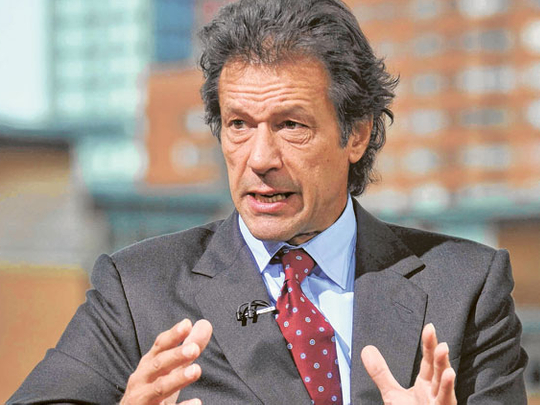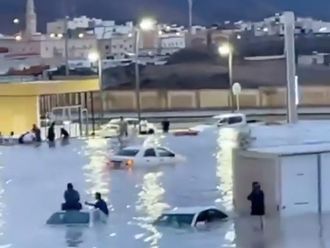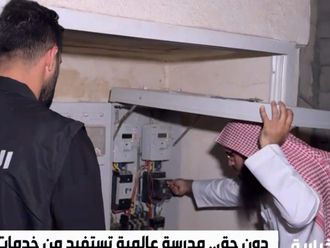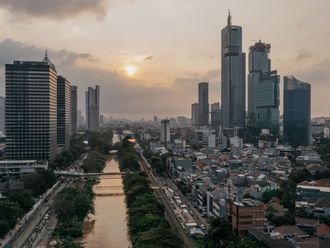
Dubai: Pakistan Tehreek-e-Insaaf Chairman Imran Khan’s Peace Convoy may have been turned back before reaching the military checkpost Manzai on the South Waziristan border to stop him from going to the village of Kotkai well inside the restive tribal agency, but he has plenty to rejoice about.
For one, Khan’s objective of highlighting the drone strikes and showing solidarity with the people of the Federally Administered Tribal Areas (FATA) has been achieved. Not only has the PTI leader refocused world attention to the contentious issue of US drone strikes that have so far killed at least 3,000 people, including hundreds of civilians, according to conservative official estimates but, more importantly, he has proven his capability as a leader that managed to bring together Pakistanis from Karachi to Khyber to demonstrate in a forceful manner their opposition to an issue that mocks the country’s sovereignty and is responsible for the mindless deaths of innocents.
Earlier, Khan, en route to Kotkai after addressing a massive rally in the town of Tank, 15km from the military checkpost on the border of South Waziristan spoke to Gulf News. He seemed visibly moved at the response he had received from the tribal people. “It’s been amazing. The whole town came out to the rally to extend support,” he said.
Khan was determined to proceed to Kotkai initially but was sceptical whether they could make it, not because of the obstacles they’d face ahead at the border but because of the large procession that may delay their reaching Kotkai in time and their consequent return. Khan decided to turn back when the army advised him to before nightfall.
After his early afternoon rally in Tank, Khan said, “I don’t know if we can make it to Kotkai because we have a 20km procession and it might take long to get there and be out of the area by nightfall.”
Initially the government authorities had tried to delay their course by placing roadblocks which were then removed by the convoy. This delay of two-three-hours was probably deliberate to slow down the procession.
The PTI Secretary, Information, Shafqat Mahmoud, who was travelling in the convoy behind Imran Khan’s vehicle, was very categorical about the authorities causing deliberate delays. When asked to give an estimate of the turnout at the Tank rally, Mahmoud said, “There were tens of thousands of people in the rally. The tribesmen were there, it’s been a phenomenal response. Because of the obstacles they placed we had been delayed. Our main objective was to go as far as possible inside South Waziristan and return by nightfall.”
There are allegations that Khan’s drone march may have been a mere political stunt to regain public attention and boost his popularity. Even the Tehrik-e-Taliban Pakistan, TTP, whom Imran Khan has always advocated negotiating with, spoke out against the PTI leader, calling him a ‘slave of the West” who was doing this as “a political stunt”. PTI sources have said that the TTP is itself feeling threatened because their political allegiances among the tribesmen are threatened. The TTP fears that Imran may prove to be a leader that could steer tribal loyalties and break forced alliances with militant groups, thus the reaction.
Mahmoud said that “the allegation that the rally was a political stunt is ridiculous, it’s completely wrong.”
Khan has been vehemently critical of drone strikes. He feels that this is a chief contributor to the anti-West sentiment and the main reason for the spread of radicalisation and militancy. His policy to counter terrorism is in total opposition to the present policy of the Pakistan government.
Khan feels that military operations in the tribal belt are the main reason indigenous militant groups have taken on the state. Khan also holds the US-led war in Afghanistan is responsible for the spread of terror in the region. The question is if Khan can persuade the indigenous militant groups within Pakistan to lay down arms if he comes to power, just by bringing them to the table and offering an olive branch.
Former president Pervez Musharraf’s two track policy of military operations and truce agreements with these groups in South Waziristan had failed in the long-term, making it imperative for the Pakistan Army to launch major military offensives in the area. While South Waziristan is now largely cleared of Taliban control with the armed forces continuing to maintain a presence, security is under constant threat from sporadic attacks including road bombings, suicide and IED attacks.
Khan’s convoy had a number of western activists who had travelled from as far as America and Britain to take part in the march against drones. Whether it was brave or foolhardy of Khan to take them and put their lives at risk is debatable but these were not ordinary men and women who came to protest their own country’s policy. These people, along with Khan and hundreds of Pakistanis who joined the convoy and thousands who came out in support at the Tank rally, have demonstrated courage and the willingness to bring about change. It may not be immediate but the process has been set in motion, a crucial factor in giving millions others hope that here is a group of people who risked their lives, who did not just protest sitting in their plush drawing rooms in the comfort of their homes but undertook a long and arduous journey to show solidarity with the tribal people who have suffered the most in this war on terror during the past decade.
This solidarity was not for the militant groups but for the tribesmen, women and children of this tribal belt that has long been denied the same rights and state resources as other parts of the country, caught as they are between the militants and the neglect of authorities whose attention and pledges to uplift the people of the area came after western states spoke about deradicalistaion and pouring in development aid as a counter-militancy strategy.
Imran’s plans of ending militancy through negotiations may be overoptimistic but his support of the people of the tribal belt is commendable. It is time other Pakistani politicians took action and not just issue rhetorical statements, whether it is about drone strikes, detrimental US or national policies or doing something for the tribal civilian population.
Imran Khan has surely set a precedent that others may be forced to take note of, especially with elections coming up next year.












